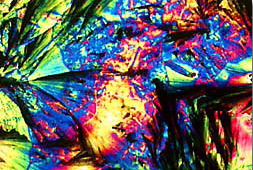
Iraq's marshes continue to recover from the damage Saddam did to them in the aftermath of the first Gulf War:
A restoration project has revived nearly half Iraq's marshlands, which were drained by Saddam Hussein to punish the country's restive Shiite Muslim majority, the United Nations has said....The project has brought safe drinking water to some 22,000 people, according to the U.N. agency.The project is funded by the Japanese and Italians, and managed by the UN Environment Program. For their next trick, maybe they could work on reviving the wetlands our government has vindictively drained.
The Chinese government is going to start buying green products:
China's Ministry of Finance and the State Environmental Protection Administration (SEPA) have announced that starting in 2007, the nation’s central and provincial governments will prioritize their purchasing of environmentally friendly products and services.Sounds like a fairly big market, for companies that are interested in that sort of thing.
California will be allowed to impose air-quality restrictions on small engines:
Engines under 50 horsepower account for 7 percent of smog emissions in California from mobile sources - the equivalent of about three million cars. The engines also power pressure washers and small generators but most are on lawnmowers.Senator Kit Bond (R-Obviously) has been blocking this legislation for years because a powerful manufacturer in his state couldn't be bothered to add catalytic converters to its small engines, even though the rewards would include excellent PR, consumer goodwill, maintaining its status as the industry leader, and boosting its sales in the fifth-largest economy on earth. Clearly, someone at Briggs & Stratton Corp. needs to bone up on the difference between positions and interests.
Come to think of it, there are plenty of American manufacturers who'd better re-read that paradigm-shattering utopian tract Who Moved My Cheese?, now that the EU's REACH program has finally been signed into law:
"REACH does not limit its provisions to trade in chemicals but also [affects] trade in products, from airplanes to adhesive tape. It applies equally to products made in Europe and products made outside Europe."Remaining competitive by adapting to market conditions? That's thinking "out of the box," alright.
Nevertheless, Russell said, "the U.S. chemical industry is going to focus quickly and smartly on getting the job done. Our customers need our products and we have a strong motivation to continue to supply them."
Another prospective piece of legislation would block California utilities from buying coal-generated energy produced in other states:
Under the rules, the state's investor-owned utilities would not be allowed to buy power from any source that spews more carbon dioxide than does a modern natural gas power plant. Specifically, the source could not emit more than 1,000 pounds of carbon dioxide for every megawatt hour of electricity produced. That's enough energy to light 750 homes for one hour.Speaking of California, did I mention that Richard Pombo (R-Gehenna) is no longer a member of the United States Congress?
Among his top goals, Rahall listed reform or repeal of Republican legislation and Bush administration policies giving oil and gas companies breaks on royalty payments. He wants to rewrite the Mining Law of 1872 to put environmental controls on gold, silver and other hard-rock mining, and extract royalty payments from mining companies.Union Pacific is testing a new scrubber for locomotive exhaust:
Rahall said there would be no more attempts to rewrite the Endangered Species Act to give more rights to property owners — a priority of Pombo’s — and said he supports maintaining existing bans on offshore drilling, and would lean toward making them permanent.
HUG Engineering, one of the world's top makers of pollution control devices for older rail and marine engines, made the scrubber and is testing it on six other locomotives in its home country of Switzerland.Five oil companies will start paying royalties on oil and gas they extract from the Gulf of Mexico:
According to Interior Department, the overall loss to the government has been about $900 million, which should have been paid by 49 companies holding the leases.There's also a long-overdue criminal investigation of the government agency charged with collecting these royalties:
That investigation is being run by the Justice Department’s Public Integrity Section, which examines suspected criminal violations by federal employees. The focus of the second investigation is unclear, but it is being conducted by the inspector general with help from the Federal Bureau of Investigation.Outrage is mounting over the Coast Guard's insane plan to turn the Great Lakes into a shooting gallery:
[O]pposition to the proposal is formidable and growing, led by an alliance of 80 mayors from eight states and Canada who called on the Coast Guard last month to drop the plan. More than a dozen environmental groups have asked for changes in the project and a deeper study of the effect on the ecosystem of hundreds of thousands of lead bullets.The DoE makes a bold claim:
If all the cars and light trucks in the nation switched from oil to electrons, idle capacity in the existing electric power system could generate most of the electricity consumed by plug-in hybrid electric vehicles. A new study for the Department of Energy finds that "off-peak" electricity production and transmission capacity could fuel 84 percent of the country's 220 million vehicles if they were plug-in hybrid electrics.Triple Pundit describes an interesting development underway in a disadvantaged area of Chicago:
A greenhouse is the air intake site for the ventilation system. A retention pond located on the premises can handle a 100 year storm event for the entire plot. Rainwater is collected from the roof and put on trucks to be used by the landscaping company. The building makes good use of a solar thermal system that works in partnership with the geothermal systems and provides heat, shades the entryway, and heats water. As you might expect in the windy city, a 67’ wind tower will be constructed to house two 2 kW wind turbines. A green roof will be planted that will feature trees, serving both as insulation and to reduce the heat island effect.I suspect the building will be finished long before we see solar panels made from blueberries, but one never knows. The problems with, and promise of, organic (i.e., silicon-free) photovoltaics are described in more detail here. Meanwhile, a new solar cell has set a light-to-energy conversion record:
"This is the photovoltaic equivalent of the four-minute mile," affirms Larry Kazmerski, director of the Department of Energy's National Center for Photovoltaics in Colorado. "This is a disruptive technology that eventually could provide us, at least in the Southwest, with cost-competitive electricity fairly quickly."In other solar news, an SF-based nonprofit has devised a brilliant plan to make solar power affordable for people in low-income neighborhoods:
Here’s a quick breakdown of what they do: They provide free design and free installation services – all the homeowner is responsible for is the cost of the equipment. The solar panels and inverters (usually obtained with discounts) are paid for with PG&E rebates and low/no interest loans (all of which they help apply for). The labor is provided by professional installers that donate their time and volunteers that they train (I’ve sat in on the training, but have yet to be volunteer labor). And homeowners participate in the installation, gaining potentially valuable job skills.Aren't you grateful you're not a witless conservatarian hack like Debra J. Saunders, and can appreciate the beauty of this idea?
Once the systems are installed, these families stand to save money each month because the loan payment is less than their reduction in energy costs.
"Squid-inspired design" sounds like a reference to PZ Myers' wardrobe. But it's actually a new example of biomimesis:
Inspired by the sleek and efficient propulsion of squid, jellyfish and other cephalopods, a University of Colorado at Boulder researcher has designed a new generation of compact vortex generators that could make it easier for scientists to maneuver and dock underwater vehicles at low speeds and with greater precision.The Popuplady offers animated demonstrations of Lothar Meggendorfer's pop-ups, including the Beetle, the Hedghog, the Snail, and these ill-mannered monkeys:
In addition, the technology - seemingly inspired by the plots of two classic sci-fi films - may soon allow doctors to guide tiny capsules with jet thrusters through the human digestive tract, enabling them to diagnose disease and dispense medications.

If that whets your appetite for movable paper images, proceed directly to this exhibit of Pop-Up and Movable Books, which also includes some nice animations.
You can also visit Pop Goes the Page, which has some lovely specimens once you get past the site's hideous design and shoddy interface. Or you can skip it, and spend the rest of the day at Molecular Expressions, whence comes this photomicrograph of tonic water:

I enjoyed Apiculture and Culture, especially the section on bee metaphors. However, it's not nearly as stunning as Herbals and Insects. You might also have a look at this exhibition of engravings by Abraham Bosse, and this collection of Australian ephemera from Monash University.
I'm also taken with this history of pantomime, both for its amazing stage sets:

And its rather sad photographs of animal impersonators:

I have no idea what this site is all about, but it's got some great graphics, as thus:

Last, if you weren't living in Dayton, Nevada in the seventies, here's your chance to see what you missed.
No comments:
Post a Comment